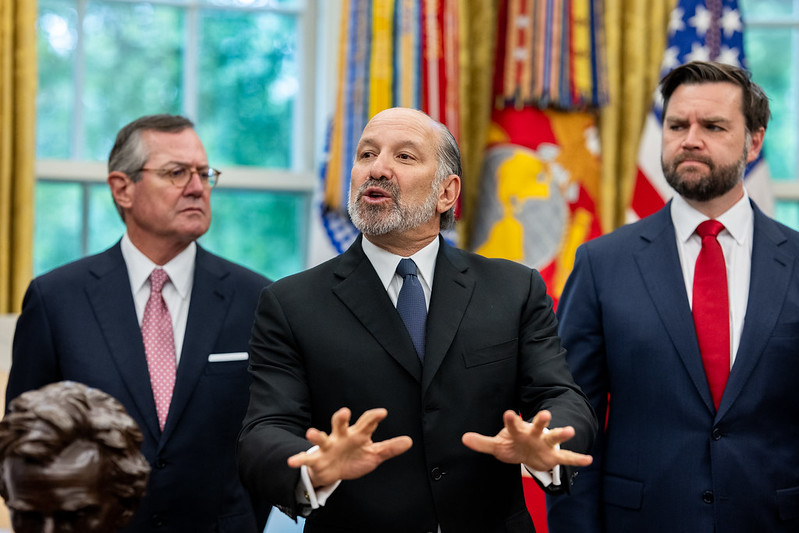
How much should the government get involved in owning shares of private market companies? As little as possible is the obvious answer, and not at all is the best option. But the Trump administration has been inserting the U.S. government into companies to secure strategic resources and control over strategic goods. At the Cato Institute, Ryan Bourne and Nathan Miller discuss the administration’s tactics, writing:
President Trump first mused about a US Sovereign Wealth Fund during his 2024 presidential campaign. Shortly after taking office, he signed an executive order instructing his Treasury and Commerce secretaries to design such a fund.
Those plans would ultimately stall, but as we summarized in August, what we’ve seen instead is a wave of ad hoc stakes and revenue shares wrested from US companies like US Steel, Nvidia, and AMD, and most famously, Intel. Trump advisers pledged to continue their interventionist tear, and just this week, Trump announced the country will take a 10 percent stake in the Canadian mining company Trilogy Metals and fast-track permit approval for an Alaskan mining road the company stands to benefit from.
A survey of top finance economists by the Kent Clark survey group warns that this strategy tends to backfire, even for the individual firm. A large majority of economists surveyed think government ownership of equity stakes is detrimental to corporate performance and governance.
On the performance question, 46 percent agreed or strongly agreed that such stakes are measurably detrimental to corporate performance. When weighted based on respondents’ confidence, 67 percent agreed, and only 7 percent disagreed. In other words, economists overwhelmingly see partial public ownership as a drag on a firm’s ability to compete and grow.
At one level, the strength of this majority might seem surprising. When governments have an ownership stake, they have an incentive to use government powers to protect their investment. After the government took stakes in Intel and Trilogy Metals, their stock prices soared as investors anticipated greater profits from the partnership. Whether it’s the expectation of political protection from shocks, the government using its powers to force others to procure from the company, or other measures to strengthen the firm’s balance sheet, one could imagine all sorts of ways a government could prop up its own investment while sullying competition and misallocating capital in aggregate.
Read more here.



